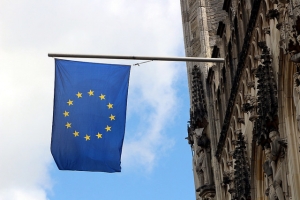Support migrant centric journalism today and donate

The question of immigration and movement of workers within the European Union has become an increasingly important issue in EU politics. One of the foundations of EU treaties and agreements is the free movement of labor within member states ... however, the situation has proven to be complicated with recent expansions of the bloc.
In 2004, when 10 new member states joined the bloc, only three nations, the United Kingdom, Ireland and Sweden, allowed unrestricted access to workers from the former communist countries.
In the aftermath of the accession, tens of thousands of workers from Eastern European countries such as Poland and Lithuania flocked to the UK and Ireland. Fearing another surge of immigration, both countries placed restrictions on Bulgarians and Romanians when their countries joined the EU in 2007.
The restrictions have caused quite a bit of debate. While some argue that the influx of foreign workers is good for the economies of both nations, others believe they increase competition for available jobs and drive down wages and work standards. In a recent survey, 66% of Britons believe there are too many foreigners in the country.
Employers generally encourage more liberal immigration policies so they can hire people for hard to fill positions, missing skills in the local labor pool and, admittedly in some cases, for lower wages. Some even state that migrant workers are harder working and more reliable than their native counterparts, which certainly doesn't win any love with the average workingman looking for a job.
All this has led to the policies put in place before Romania and Bulgaria joined the EU. Most nations that were members of the EU before 2004 have restrictions in place for Bulgaria and Romania.
The notable exceptions are Finland and Sweden.
Both nations are very liberal in their attitude toward free movement of labor - Sweden has always had its doors open to all members of the EU, while Finland removed restrictions on 01 May 2006 for the 10 member states that joined in 2004.
Sweden's attitude toward immigration in general is very open and in stark contrast to many of its EU counterparts, even welcoming Iraqi refugees to the point where they are requesting help from the rest of the bloc in shouldering the load.
Not all nations are as open to newcomers as the EU's northern nations.
Some of the countries with the most restrictive policies are Germany, France and the Netherlands. All continue to impose special requirements on 2004 EU entrants, as well as Bulgaria and Romania.
However, Germany - facing an aging population and hard to fill jobs - is becoming fairly liberal about granting work permits ... issuing 500,000 of them in a recent two year period.
France and the Netherlands continue to see immigration as an especially difficult topic that gets entangled with national identity and freedom of religion issues, attributed in part from controversies with their large Muslim populations and some high-profile tragedies with culture clashes in the past several years.
Meanwhile, the issue of freedom of labor movement for new EU members is getting tied up with the EU's efforts to curb illegal immigration on its southern front.
Recently, the European Union started a process to create job centers in Africa with the goal of providing a route to legal, temporary immigration for workers from the continent. In 2006, an estimated 30,000 illegal immigrants from Africa landed in the Spanish Canary Islands alone.
Working with governments of African nations, the EU hopes to place workers from Africa in hard to fill sectors such as agriculture, building and cleaning services. In exchange for cooperation, the EU plans to provide development aid to African nations to help reduce the need for migrants to leave Africa.
This has caused the central and eastern EU member states to voice their opinions that lifting restrictions on their countries should come first, before making it easier for third-country nationals to find work in the bloc.
Some EU member states, such as Ireland, do require employers to look for Bulgarians and Romanians before looking outside the EU when trying to place hard to fill jobs.
In the case of the UK, the Sectors Based Scheme, a quota-based scheme originally aimed at third-country nationals and slated to be discontinued, was extended exclusively for Romanians and Bulgarians. Aimed at a difficult job market to find workers, the scheme allows Romanians and Bulgarians to come into the UK and work in the Food Manufacturing field ... not exactly sought-after work for a highly skilled professional from Bucharest.
The EU has seen a rapid expansion of its borders in recent years, and the repercussions are still being felt. Attitudes towards immigration have always been a sore spot for any country, especially in the strongly multicultural makeup of the European Union.
Not mentioned very often, some people see the restrictions as beneficial to the new accession states. If there were no restrictions at all, a "brain drain" could occur, where all the most educated and experienced citizens would leave, creating a downward spiral in the source country where the economic conditions would deteriorate even further.
Perhaps the dust will settle in the future, after most nations lift restrictions on the new member states and the EU can stand by its principle of free movement of labor. By accession treaty, restrictions must be fully lifted no more than seven years after a new Member States joins.
For some, it is not soon enough. For others, it is too soon.
Related:
• Study finds education plays a role in perception of immigrants• Romanian president expects wave of immigration from Moldova
• Bulgaria and Romania join the European Union
• Romania and Bulgaria lobby the UK for open-doors
• Profile of new EU-27 nation, Romania
• Profile of new EU-27 nation, Bulgaria
• EU wants migrant job centers in Africa
• Report praises migrant contribution to UK workforce
• EU - Sweden opens labour market to new EU workers
• Finland, Spain, Portugal to accept new EU member state workers





















